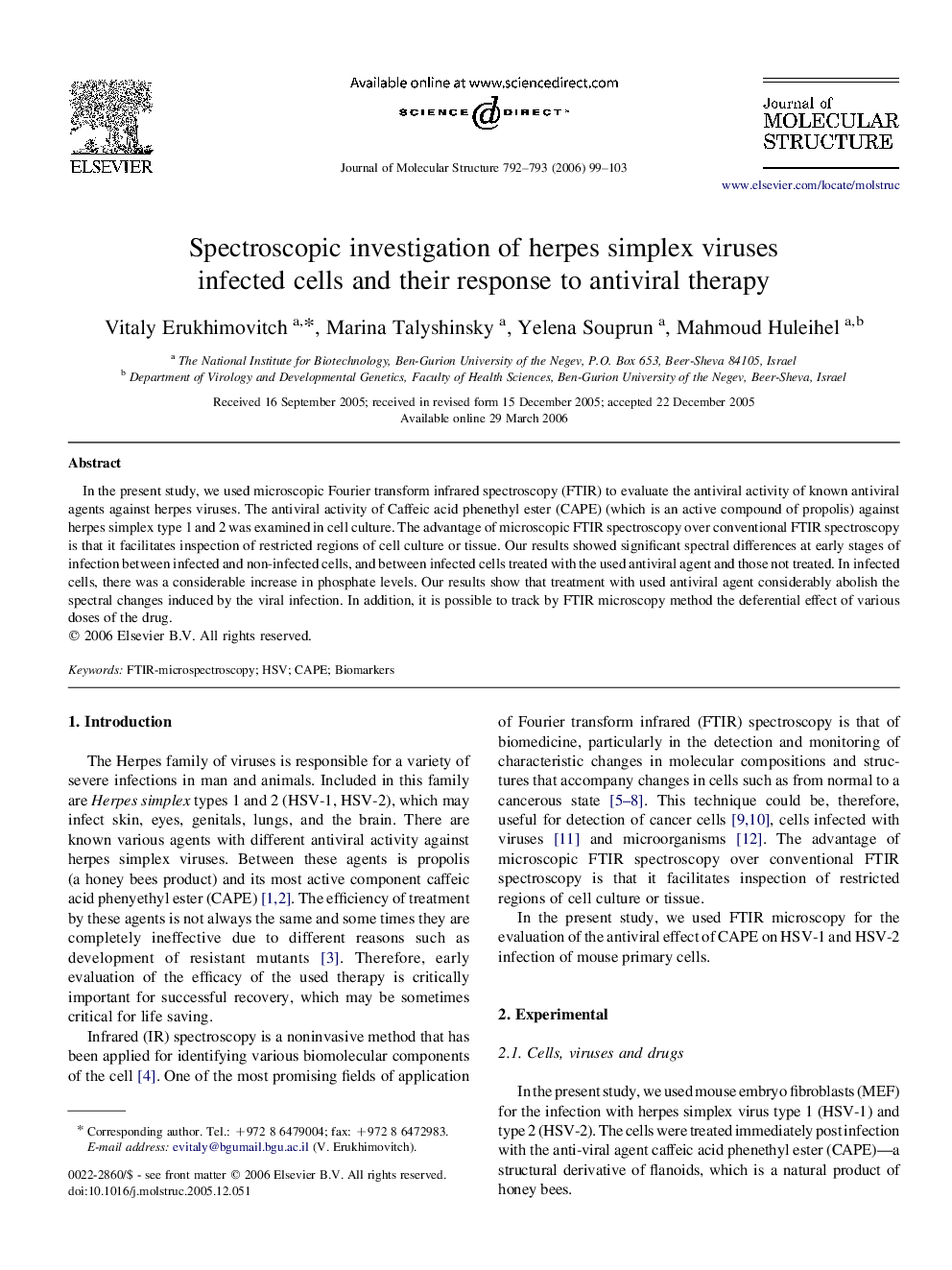| Article ID | Journal | Published Year | Pages | File Type |
|---|---|---|---|---|
| 1404599 | Journal of Molecular Structure | 2006 | 5 Pages |
Abstract
In the present study, we used microscopic Fourier transform infrared spectroscopy (FTIR) to evaluate the antiviral activity of known antiviral agents against herpes viruses. The antiviral activity of Caffeic acid phenethyl ester (CAPE) (which is an active compound of propolis) against herpes simplex type 1 and 2 was examined in cell culture. The advantage of microscopic FTIR spectroscopy over conventional FTIR spectroscopy is that it facilitates inspection of restricted regions of cell culture or tissue. Our results showed significant spectral differences at early stages of infection between infected and non-infected cells, and between infected cells treated with the used antiviral agent and those not treated. In infected cells, there was a considerable increase in phosphate levels. Our results show that treatment with used antiviral agent considerably abolish the spectral changes induced by the viral infection. In addition, it is possible to track by FTIR microscopy method the deferential effect of various doses of the drug.
Related Topics
Physical Sciences and Engineering
Chemistry
Organic Chemistry
Authors
Vitaly Erukhimovitch, Marina Talyshinsky, Yelena Souprun, Mahmoud Huleihel,
